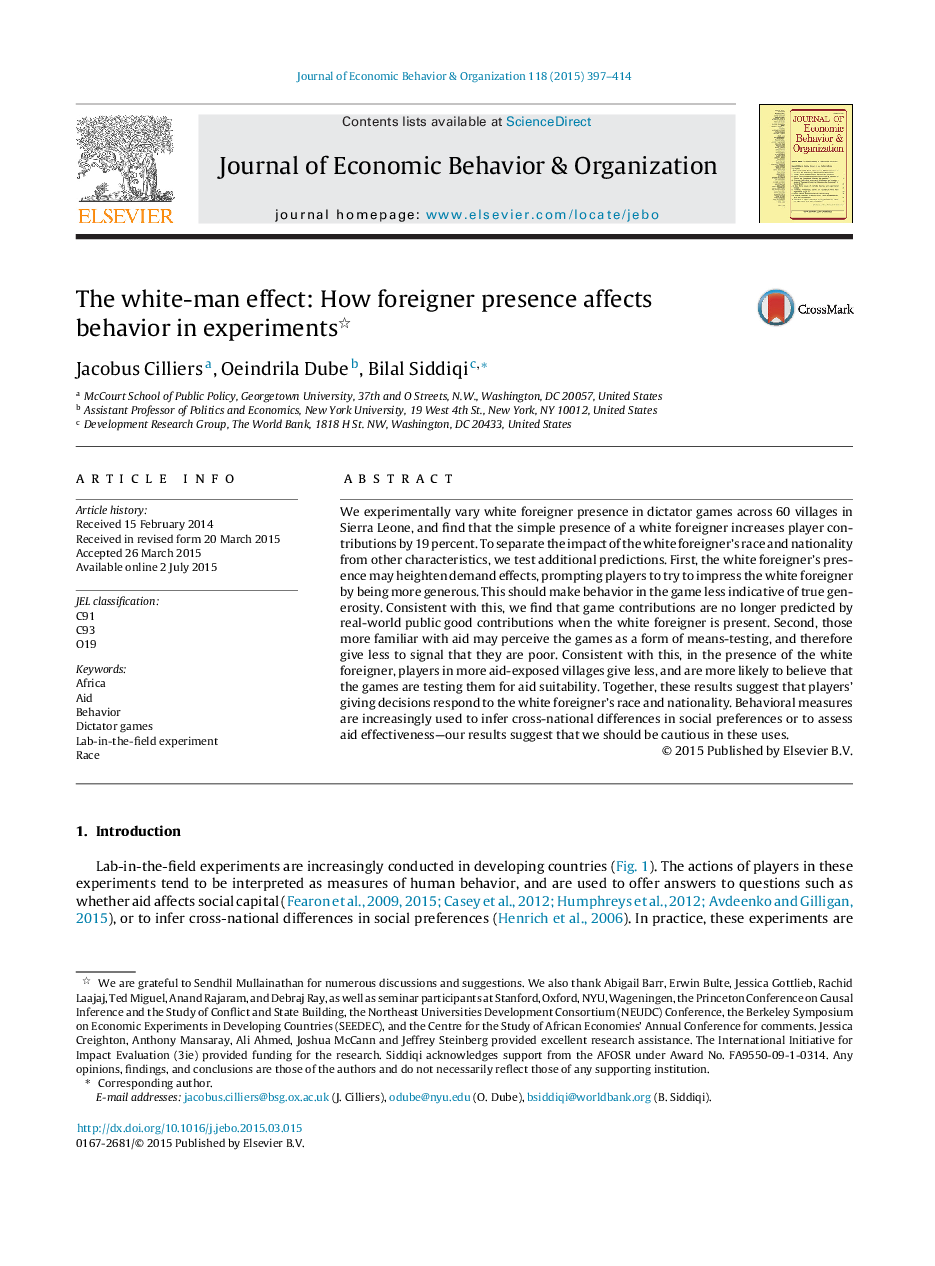| Article ID | Journal | Published Year | Pages | File Type |
|---|---|---|---|---|
| 7243021 | Journal of Economic Behavior & Organization | 2015 | 18 Pages |
Abstract
We experimentally vary white foreigner presence in dictator games across 60 villages in Sierra Leone, and find that the simple presence of a white foreigner increases player contributions by 19 percent. To separate the impact of the white foreigner's race and nationality from other characteristics, we test additional predictions. First, the white foreigner's presence may heighten demand effects, prompting players to try to impress the white foreigner by being more generous. This should make behavior in the game less indicative of true generosity. Consistent with this, we find that game contributions are no longer predicted by real-world public good contributions when the white foreigner is present. Second, those more familiar with aid may perceive the games as a form of means-testing, and therefore give less to signal that they are poor. Consistent with this, in the presence of the white foreigner, players in more aid-exposed villages give less, and are more likely to believe that the games are testing them for aid suitability. Together, these results suggest that players' giving decisions respond to the white foreigner's race and nationality. Behavioral measures are increasingly used to infer cross-national differences in social preferences or to assess aid effectiveness-our results suggest that we should be cautious in these uses.
Related Topics
Social Sciences and Humanities
Economics, Econometrics and Finance
Economics and Econometrics
Authors
Jacobus Cilliers, Oeindrila Dube, Bilal Siddiqi,
